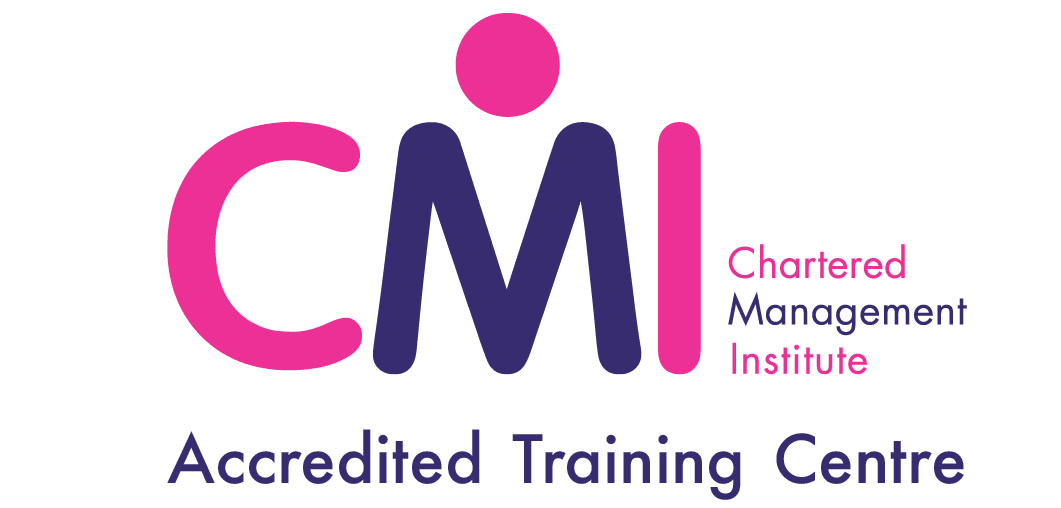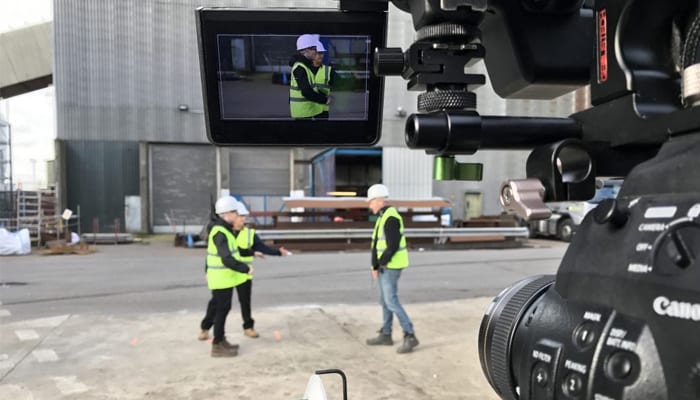
CMI Level 6 Units
These qualifications are aimed at practising or aspiring managers who will supervise or manage a team to achieve clearly defined outcomes. They will set and monitor goals and objectives by providing instruction, direction and guidance. Day to day operational and project activities are a key part of their role..
AWARD
1-2 Units – 1 to 3 months
Providing an overview of the roles and responsibilities required for managers, the Award will develop the skills required for this level of responsibility.
CERTIFICATE
2-3 Units – 3 to 6 months
The Certificate provides a broader knowledge of skills to help you be more effective in specific management areas, with increased focus on the areas that are most appropriate to your role and organisation.
DIPLOMA
5-7 Units – 6 to 12 months
The Diploma gives you a fully comprehensive bank of the skills and knowledge required to be a manager as part of an organisation, as well as the ability to apply your learning in the context of another organisation or industry sector.
Unit 601 Professional Management and Leadership Practice
An outstanding professional manager and leader is typified by someone who has the ability to select and apply knowledge, skills, values and behaviours effectively in their working role. Whilst many of these attributes can be developed through experiential learning, these can be sharpened and amplified through an in-depth exploration of the topic. The aim of this unit is to enable the professional manager and leader to consider the influence of an organisation’s context on how individuals are managed and led. They will reflect on the values, behaviours, knowledge and skills required, not only to deliver successful organisational outcomes, but to lead individuals with confidence..
Learning Outcomes:
- Understand the influence of organisational context on management and leadership practice
- Understand the practice of professional management and leadership
Unit 603 Organisational Culture
Culture matters. Beliefs, principles, ideologies, behaviours and values have the power to influence an organisation’s success. Culture is emergent, it develops over time and is influenced by the cultural identity of staff and stakeholders and the approaches taken to lead and manage others. It is also influenced by an organisation’s history, purpose, activities, vision, mission and values. The aim of this unit is to equip professional managers and leaders with an understanding of the role and impact of culture within organisations and the approaches to make and sustain cultural change.
Learning Outcomes:
- Understand the role of culture within organisational contexts
- Understand approaches required to make and sustain cultural change
Unit 605 Innovation and Change
The ability to drive innovation and change is an essential skill for a professional manager and leader. Innovation, defined simply as ‘doing something new or different,’ is a powerful catalyst for change. It can revolutionise an organisation’s operational activities, create dynamic new opportunities, and contribute to the achievement of strategic goals. Change occurs in many forms and leaders must be able to respond to changes which are radical, incremental or evolutionary. This unit has been designed to enable the professional manager and leader to understand innovation and change within organisational contexts. It explores the rationale for innovation and change, such as the impact of technology and digitalisation. Most importantly it focuses on the knowledge, values and behaviours that ultimately will equip the professional managers and leaders to successfully drive innovation and change.
Learning Outcomes:
- Understand innovation and change within an organisational context
- Know how to drive innovation and change
Unit 607 Procurement, Purchasing and Contracting
The ability to procure, purchase and contract goods, services and capital items effectively is of paramount importance if an organisation is to succeed. For the professional manager and leader this knowledge and understanding is invaluable. It has the power to enhance decision making, strategic and operational planning and the effective delivery of outcomes within budgetary constraints. It is important to recognise that the terms ‘procurement’ and ‘purchasing’ are interpreted differently depending on the type of organisation. For the purpose of this unit, ‘procurement’ is recognised as the strategic activity that will be underpinned by ‘purchasing’ and ‘contracting’. The aim of this unit is for managers and leaders to realise business objectives though competent, ethical and professional contracting, purchasing and procurement practices.
Learning Outcomes:
- Understand the principles of procurement, purchasing and contracting within organisational contexts
- Know how to apply the principles of procurement, purchasing and contracting to achieve an operational requirement
Unit 609 Leading Quality Management
Effective quality management is critical to meeting stakeholder needs and expectations, developing trust and reputation. It impacts on profitability, processes and procedures and the achievement of strategic objectives. Quality is not something that occurs by chance. It is reliant on strategic and operational planning and the commitment and drive by professional managers, leaders, teams and individuals to make it a success. The aim of this unit is to enable professional managers and leaders to understand the rationale and approaches to quality management. Critically, the unit focuses on how quality and continuous improvement can be instilled into all aspects of working practice.
Learning Outcomes:
- Understand the factors which influence organisational approaches to quality management
- Know how to lead quality management to achieve strategic objectives
Unit 611 Knowledge Management
The approach taken to manage knowledge within organisations has the power to impact on productivity, competitive advantage, succession planning and ultimately an organisation’s success.
Knowledge management is more than the use of information and communications technologies to exchange data and information. Knowledge management also focusses on strategy, experiential learning and context. It includes human interaction and understanding.
On successful completion of the unit, professional managers and leaders will understand the impact of knowledge management on an organisation and the individuals working within it. Vitally, professional managers and leaders will develop a strategy to drive knowledge management in an organisational context.
Learning Outcomes:
- Understand knowledge management within organisational contexts
- Understand the human and cultural dimensions of knowledge management
- Know how to develop a strategy to drive knowledge management in an organisational context
Unit 613 Leading Equality, Diversity and Inclusion
The ability to lead equality, diversity and inclusion in an organisational context requires insight, knowledge and a commitment to valuing individuals regardless of their similarities and differences. Whilst an in-depth understanding of the legal and regulatory frameworks is essential, managers and leaders must constantly keep abreast of changes and influences which impact on how equality, diversity and inclusion is led and managed. To do this effectively, managers and leaders need to create an environment where individuals and teams feel able to have honest conversations and share their needs, expectations and opinions in an open and constructive way. The aim of this unit is to equip professional managers and leaders with the understanding and knowledge of how to lead equality, diversity and inclusion with confidence.
Learning Outcomes:
- Understand the context for leading equality, diversity and inclusion
- Know how to lead equality, diversity and inclusion in an organisational context
Unit 602 Developing, Managing and Leading Individuals and Teams
Individuals and teams are a highly prized resource which, if developed, managed and led effectively, can transform an organisation’s reputation, productivity and success. The aim of this unit is for the professional manager and leader to understand the principles for developing, managing and leading individuals and teams. On completion of the unit, learners will understand the multi-dimensional factors which influence the way individuals and teams are developed and led. They will examine the role of organisational structures for managing human resources and be given the opportunity to research classic and contemporary approaches to the management and development of individuals and teams. Ultimately, this unit will culminate in an assessment of the skills required to lead and develop individuals and teams in a manner that not only achieves results but is ethical, fair, empowering and collaborative.
Learning Outcomes:
- Understand the principles for developing, managing and leading individuals and teams
- Know how to develop, manage and lead individuals and teams to achieve results
Unit 604 Strategic Programme and Project Management
Programme and project management is an essential skill for a professional manager and leader to develop. Whilst a project is singular, programmes will encompass a range of projects. The reality of managing programmes and projects is complicated. There are a broad range of multi-dimensional issues which influence how these are led; not least the impact of stakeholder involvement, financing, resourcing and appetite for risk. Ultimately, the success of a programme or project is judged on the achievement of goals within the parameters of cost, quality, resources used and timescales. The aim of this unit is to equip professional managers and leaders with an understanding of how to proactively respond to the demands of project and programme management, regardless of their type, size and complexity.
Learning Outcomes:
- Understand programmes and project management in an organisational context
- Understand factors and approaches for delivering a strategy for a programme or project management
- Know how to lead programmes and projects to achieve results
Unit 606 Developing and Leading Strategy
Organisational strategy is often seen as a blueprint which guides an organisation’s path. It can be created to provide stakeholders with the organisation’s direction for the future, as well as enabling an organisation to measure and monitor its success. Organisational strategy may evolve over time to respond to different circumstances, new opportunities or unexpected challenges. Ultimately, successful outcomes result from the way the organisational strategy is led, managed and implemented. The aim of this unit is to enable professional managers and leaders to understand approaches to developing organisational strategy and how to formulate and lead operational strategy to achieve a strategic aim.
Learning Outcomes:
- Understand approaches to developing organisational strategy
- Know how to develop and lead operational strategy to achieve a strategic aim
Unit 608 Strategic Corporate Social Responsibility and Sustainability
Corporate Social Responsibility (CSR) and sustainability are topics keenly related to organisational accountability. Definitions and approaches taken to manage and lead CSR and sustainability vary according to the type and purpose of an organisation and its governance. Approaches typically include the development of aims and objectives, policy and strategy, with the intent to address the impact of an organisation’s activity on society, the environment and a commitment to ethical and responsible conduct. The aim of this unit is to enable professional managers and leaders to understand CSR and sustainability in an organisational context. They will assess the enablers, constraints and barriers to its success, present a case for organisational engagement, identify approaches for its implementation and ultimately, identify strategies to gain ongoing stakeholder commitment.
Learning Outcomes:
- Understand corporate social responsibility and sustainability in organisational contexts
- Know how corporate social responsibility and sustainability is applied in an organisational setting
Unit 610 Principles and Practices of Policy Development
The principles laid down in organisational, corporate, functional and departmental policies have a direct bearing on the daily activities of an organisation’s workforce. Policy focuses on the activities which are of critical importance to an organisation.
Policies can be used to set strategic direction. Policies also set expectations about the behaviours and values required by staff to work ethically and professionally within their roles and when representing the organisation. Policy writing is an art form which requires great skill. An in-depth understanding of the context in which policy is developed, the factors which drive the need for policy, and crucially, the influence of stakeholders in policy development is required to write effective policies.
The aim of the unit is to enable professional managers and leaders to take a fresh look at the role policy plays within an organisation, know how policy can be developed and ultimately, cascaded successfully to its intended audience.
Learning Outcomes:
- Understand the context in which a policy is developed
- Know how to develop, implement and evaluate policy
Unit 612 Coaching Skills for Leaders
Coaching is a powerful learning and development tool. Used effectively, it is able to optimise individual and team performance and the achievement of organisational goals. Coaching has rapidly become an essential leadership tool. It enables the professional manager and leader to support, motivate and empower individuals and teams in a conversational and insightful way. This contrasts with and complements the use of traditional directive leadership approaches. This unit focuses on these specific coaching skills, techniques and approaches that are required by leaders to develop the knowledge, skills and resourcefulness of individuals. It focusses on the benefits and types of coaching used by leaders in different contexts and how the application of coaching impacts in the organisational environment. A key part of this unit is for leaders to critically reflect on own their own ability to coach individuals and identify opportunities for improvement. In order to achieve this, learners will need to use coaching skills in their leadership practice.
Learning Outcomes:
- Understand the benefits, types and application of coaching used by leaders
- Know the skills, techniques and approaches required by leaders to coach
Unit 614 Principles and Practices of Ethical Decision Making
The ability to make ethical decisions under pressure is a fundamental requirement of a professional manager and leader. Ethical decision making is not easy, especially when decisions are under the spotlight of stakeholder opinion, constrained by organisational, legal and regulatory requirements, where ambiguity exists, where risks are high or where the outcome of decisions will be unpopular. All decisions involve some form of value-based judgement and could involve ethical considerations. Whilst mechanistic decision making is the ability to select an action from different alternatives, ethical decision making focuses on value-based judgements and a wider range of issues that are typically more complicated in nature. The aim of this unit it to equip professional managers and leaders with the understanding of how to make ethical decisions in different organisational contexts.
Learning Outcomes:
- Understand ethical decision making within organisational contexts
- Know how to make an ethical decision
We can also help with…
Leadership & Management Training
We’re an accredited training provider for the Chartered Management Institute (CMI) range of courses. We are the only company in the UK to provide a specific Safety Leadership Training course pending accreditation by the CMI.
HSE Documents & Engagement Programmes
This is where it all started for us. For over 20 years we’ve been turning tedious HSE manuals into clear, engaging communications. We can script and check against latest compliance if you’re too busy. Our approach is very different and our initial investment in getting it right for you is refreshingly simple, but incredibly effective.
Behavioural Safety & Safety Leadership
‘Face to Face’ fully immersive integration is at the very heart of our training. Our Award-Winning Training Programmes are proven to change safety behaviours in high-risk industries from oil & petro to waste management, rail and shipping.
Trending Knowledge
more…








